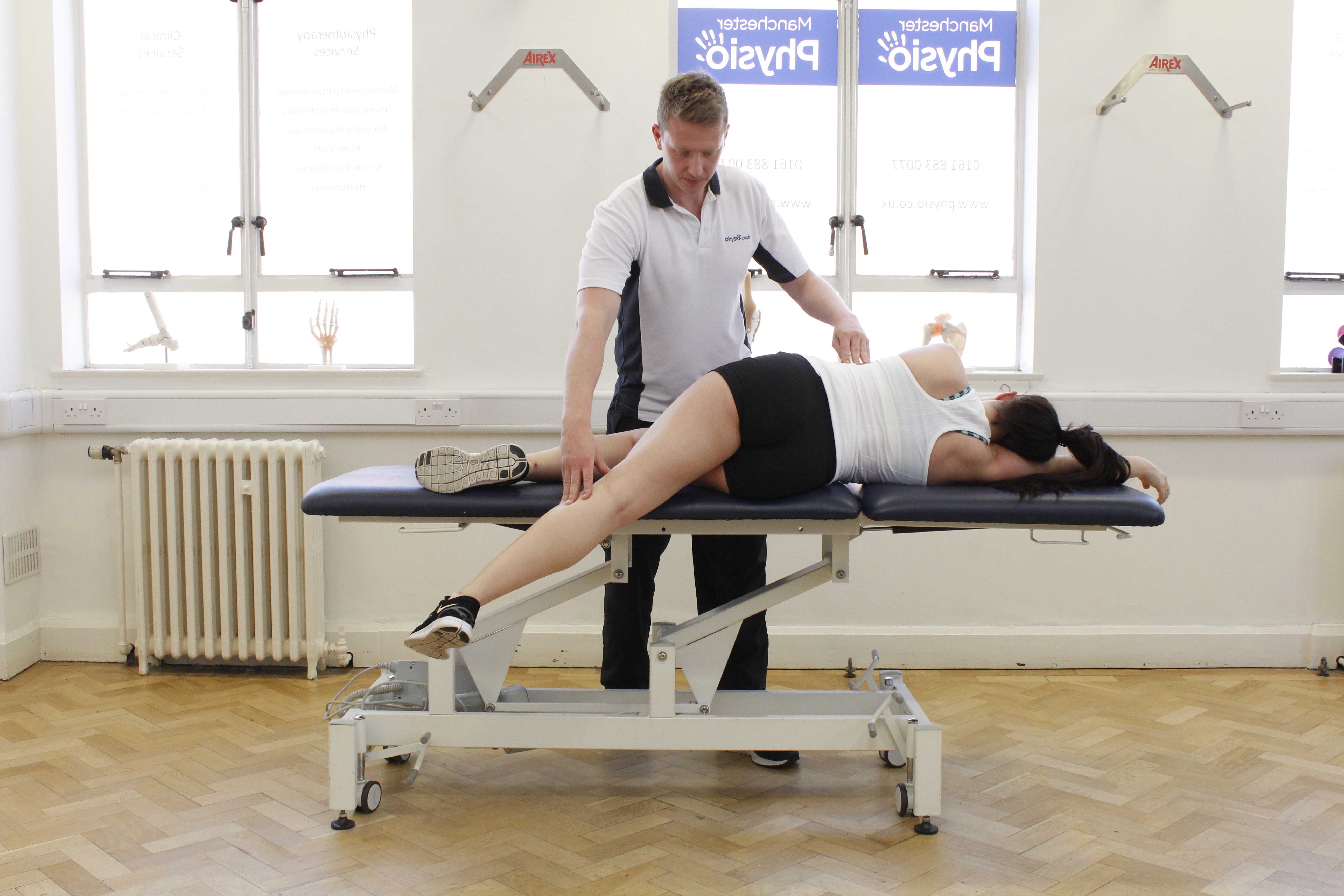What is hip impingement?
Hip impingement, or femoral acetabular impingement, is when the hip undergoes anatomical changes and is no longer moving smoothly in its socket. There are two types of hip impingement:
- CAM impingement - This is when the top of the thigh bone is abnormally shaped and doesn't move smoothly in the socket.
- Pincer impingement - This is when the socket may be deeper than usual with excess bone on the lip of the socket, causing the top of the hip to catch on this lip.
 Above: Passive stretch of hip abductor muscles and joint, applied by physiotherapist
Above: Passive stretch of hip abductor muscles and joint, applied by physiotherapistHow does hip impingement happen?
Hip impingement is caused by the position of the hip bone in its socket, with the hip bone normally towards the front of the socket where it is more likely to catch on the lip of the socket. This may occur in people who are born with a slightly larger hip bone, making it more likely to catch on the rim of the socket. Other common causes are from runners who have biomechanical abnormalities that cause the hip bone to be pulled to the front of the socket where it can pinch on the lip.
What are the symptoms of hip impingement?
The symptoms of hip impingement can differ depending on the severity of the impingement, but some common symptoms are:
- Hip and/or groin pain that is deep and difficult to locate
- Symptoms may be worse after running and sitting for long periods of time
- Your hip may feel generally stiffer than your opposite side
- Your hip may regularly make popping and clicking sounds
What is the physiotherapy treatment for hip impingement?
Your physiotherapist will perform a Biomechanical Running Assessment to diagnose the injury and the severity of your impingement, treatments will typically include:
- Biomechanical running assessment
- Strengthening programme
- Stretching programme
- Joint and soft tissue mobilisation
- Sport-specific rehab (if applicable)
- Running drills and cues
Could there be any long term effects from hip impingement?
Hip impingement can be treated conservatively in the early stages, but if the impingement is allowed to progress, surgery may be required to resolve the symptoms. This will result in a longer period of rehabilitation.
To arrange a biomechanical running assessment with one of the specialist physiotherapists, please call Physio.co.uk on 0330 088 7800 today. You can also book appointments online using our online booking system

 0330 088 7800
0330 088 7800





































